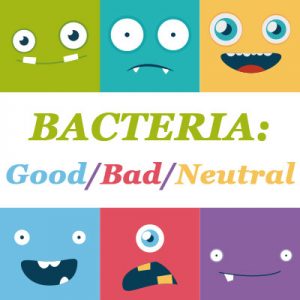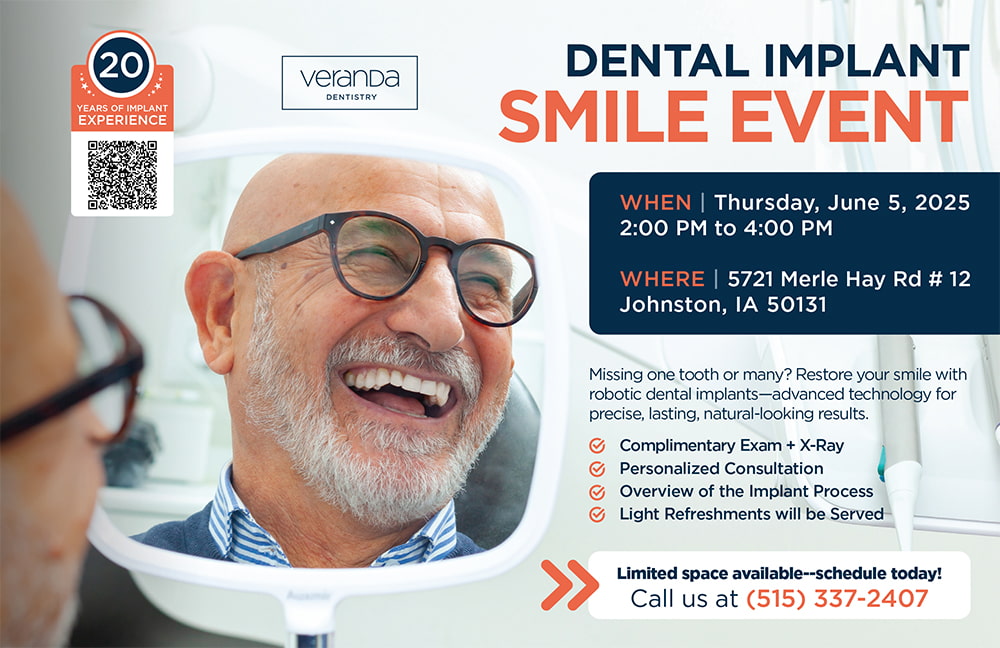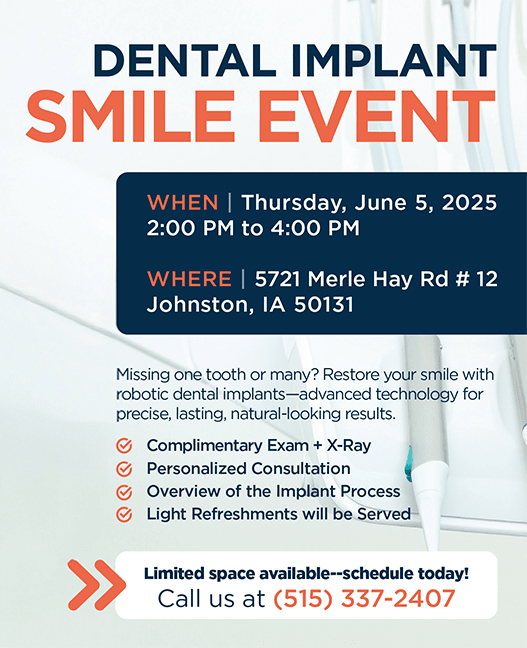Bacteria: The Good, The Bad & The Neutral
 Living in a land of antibacterial gels, soaps, plastics and even fabrics, it might surprise you to hear that tons of bacteria live in your mouth every day, and they aren’t all bad! In fact, some play an important role in keeping up your overall health. Some oral bacteria, however, can cause serious problems and must be fought with good oral hygiene.
Living in a land of antibacterial gels, soaps, plastics and even fabrics, it might surprise you to hear that tons of bacteria live in your mouth every day, and they aren’t all bad! In fact, some play an important role in keeping up your overall health. Some oral bacteria, however, can cause serious problems and must be fought with good oral hygiene.
Dr. Chad Johnson from Veranda Dentistry in Pleasant Hill helps you understand the role bacteria play in your health and wellness.
What are Bacteria?
Bacteria are very small organisms made of just one single cell. That’s compared to over 37 trillion cells in the human body! Bacteria have their own DNA and they need sources of energy (food) just like you do. Nearly 700 different kinds of bacteria can live in your mouth! But most people only have 34-72 kinds at any given time.
What Do Bacteria Do?
Of all the bacteria in your mouth, some are good, some are bad, and some are simply neutral. The good bacteria, called probiotics, help aid digestion, which begins in the mouth. Thank you, little bacteria!
The bad bacteria, however, can cause tooth decay and severe gum disease. The following three kinds of bacteria are on the Most Wanted list for being known to harm your oral health:
- Streptococcus mutans are the bacteria most often blamed for tooth decay. These bacteria feed off any sugar left in your mouth after eating. As they feed, the bacteria produce acid that breaks down your tooth layer by layer.
- denticola and P. gingivalis are the biggest offenders for causing gum disease or periodontal disease. These bacteria produce toxins that harm your gum tissue. Your body’s natural response is to create an inflammation to fight the toxins. But long-term, chronic inflammation is bad for your mouth and body and can even cause tooth loss.
The Oral-systemic Link
“The foot bone’s connected to the … leg bone!”
Remember the simple lesson we learned when we were kids, that every part of your body is connected to another part? If you’re unhealthy in any area of your life, another area will become unhealthy too. This is especially true when it comes to your mouth. The health of your teeth, gums, and jaw are a good indication of the health everywhere else in your body.
Your mouth is a major entry point into your body through both digestion and your blood stream. Harmful bacteria can infect other parts of your body by traveling through your gut or entering the blood vessels in your gums.
Heart health and diabetes are the most well-known connections between oral health and overall health, but research is growing and expanding every day. All of these connections, or, links, form the oral-systemic link. Dentist, doctors, and researchers work together to understand the oral-systemic link and how we can use it to promote better health all areas of your life.
A recent study showed “significant associations” between the antibodies of certain oral bacteria with pancreatic cancer! Antibodies are your body’s way of fending off harmful substances. If your mouth has a lot of antibodies for a certain kind of bacteria, it could mean your body is fighting illness—both in your mouth and in other parts of your body. This is amazing news because pancreatic cancer is one of the most difficult cancers to detect and fight. By harnessing the power of the oral-systemic link, you can get far ahead of severe health problems before they even start.
In 1880, W.D. Miller said, “Oral bacteria can explain most, if not all, of the illnesses of mankind.” Ahead of your time much, Mr. Miller?
Good oral hygiene—brushing, flossing, and seeing your dentist regularly—is important for keeping the bad bacteria at bay. If you’d like to learn more about how a healthy mouth promotes a healthy, happy life, make an appointment with us today!
https://www.perio.org/consumer/pocket-reduction-procedures.htm
http://jamiethedentist.com/oral-health-and-general-health/the-importance-of-oral-health
http://www.colgateprofessional.com/patient-education/articles/dental-caries












